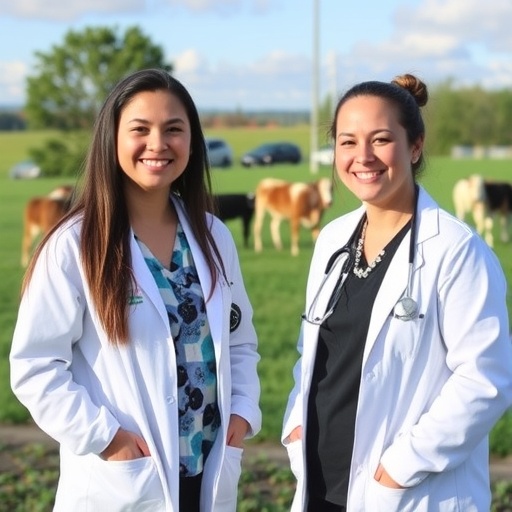In recent years, the challenges faced by healthcare systems in rural and remote areas have gained increasing attention. A recent study led by Minooee, Wright, and Woolley, titled “Choosing regional, rural, and remote practice: what attracts or deters early-career doctors?”, sheds light on the complex landscape of early-career physicians’ motivations related to their professional choices. The findings, published in BMC Health Services Research, offer valuable insights into the factors influencing medical graduates when considering careers in less populated regions.
Historically, the allure of urban centers has overshadowed rural medical practice. Early-career doctors often find themselves drawn to metropolitan areas, where facilities are more advanced, and opportunities for professional development are abundant. However, this trend raises critical questions about the healthcare access and quality for communities situated in regional, rural, and remote areas. The study identifies both attractive and deterrent factors that future healthcare professionals weigh when contemplating their practice locations.
Attractiveness to rural practice stems from a variety of factors that can appeal to the idealistic aspirations of young doctors. Among these is the opportunity to make genuine impacts on local communities. Rural settings often provide a close-knit environment where physicians can become integral to the health and well-being of their patients. The research highlights how the prospect of forming long-lasting relationships with patients serves as a motivating factor for many medical graduates.
Additionally, the financial aspects of rural practice can be enticing, especially in light of the crippling student debt that plagues many new doctors. Programs aimed at incentivizing rural practice, like loan forgiveness and financial bonuses, are increasingly popular among emerging healthcare professionals. The study suggests that organizations should continue enhancing these financial incentives to attract a more significant number of early-career doctors to underserved areas.
Conversely, the study also identifies deterrents that can overshadow the potential benefits of rural practice. Isolation is often cited as a significant concern for young doctors who may be unsure about living away from urban amenities. The professional support networks that are typically accessible in metropolitan areas can be notably sparse in rural settings, which raises concerns about career growth and mentorship. The researchers emphasize that addressing these feelings of isolation is crucial for developing sustainable solutions to recruit and retain healthcare professionals in rural regions.
Moreover, the study highlights the challenges associated with professional development in less populated areas. Early-career doctors may worry about limited opportunities for specialization, reducing their competitiveness and opportunities within the medical community. The authors point out that enhancing access to training programs and professional development resources in rural regions is vital to counteracting such deterrents. Only through strengthening these aspects can rural practice truly thrive.
Another critical aspect that influences physicians’ decisions involves the lifestyle associated with rural living. While many appreciate the slower pace and natural beauty of rural areas, concerns regarding access to amenities and recreational activities can arise. Young physicians may grapple with the idea of sacrificing urban comforts for the peace of the countryside. The research suggests that initiatives aimed at improving quality of life in rural areas may significantly influence young doctors’ decisions in favor of these communities.
An integral part of the study also revolves around identifying existing misconceptions that early-career doctors may have regarding rural practice. Many medical graduates harbor negative stereotypes about working in rural healthcare, which can deter them from even considering this vital career path. Addressing these misconceptions through comprehensive exposure to the realities of rural medicine during medical training could shift perceptions and encourage more doctors to embark on rural careers.
Networking opportunities also play a crucial role in doctors’ decisions. Collaborative initiatives, such as mentorship programs that connect young physicians with experienced practitioners in rural settings, can bridge the gap created by existing isolation. Implementing such measures can foster a sense of belonging and reduce the fear of stepping into unknown territory, thereby increasing the likelihood of physicians choosing rural paths.
In summary, while the draw of urban practices remains strong, the findings of Minooee, Wright, and Woolley highlight essential factors that can sway early-career doctors toward rural and remote medical practices. The balance between attractive incentives and deterrent factors is delicate and complex, and both must be addressed to ensure underserved communities receive the healthcare they need.
As healthcare systems worldwide continue grappling with the uneven distributions of medical professionals, studies like this serve as a clarion call to assess policies and programs aimed at shaping the workforce of tomorrow. By fostering a better understanding of what drives or deters young doctors from rural practice, stakeholders can formulate targeted interventions that work to revitalize rural healthcare.
It is evident that the future of rural healthcare relies on a multi-faceted approach – one that encompasses financial incentives, lifestyle improvements, and solid support networks. Engaging with medical students and early-career professionals about their aspirations while actively working to dismantle barriers will be crucial in forging pathways that lead to a more balanced healthcare landscape.
As this narrative evolves, it remains vital for healthcare policymakers and institutions to prioritize research and conversations surrounding the attraction and deterrents to rural practice. Only by doing so can we pave the way for a more equitable health system that serves as a lifeline to every community, irrespective of its geographical location.
Subject of Research: Factors influencing early-career doctors’ choices in regional, rural, and remote practice.
Article Title: Choosing regional, rural, and remote practice: what attracts or deters early-career doctors?
Article References:
Minooee, S., Wright, S. & Woolley, T. Choosing regional, rural, and remote practice: what attracts or deters early-career doctors?.
BMC Health Serv Res 25, 1368 (2025). https://doi.org/10.1186/s12913-025-13465-3
Image Credits: AI Generated
DOI: 10.1186/s12913-025-13465-3
Keywords: rural healthcare, early-career doctors, medical practice, healthcare access, professional development, lifestyle factors




